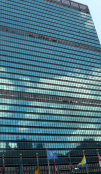STOP IMPUNITY – The Road to Accountability and Justice

The forum comprised 2 plenary discussions, several thematic panel sessions and many interactive sessions where participants could exchange experience and identify practical solutions to foster justice worldwide. As in previous years, the Forum was co-organised by the EEAS, DG INTPA, and the Human Rights and Democracy Network.
Under the theme “The road to accountability and justice - Human Rights in Crisis and Conflict”, the Forum was organized into three pillars:
- Preventing Impunity - ensuring accountability and justice
- Civil society actors in crisis and conflict situations
- International accountability mechanisms.
The 2022 focus of the Forum was chosen against the background of the Russian aggression against Ukraine, which had served as a stark reminder of how war and conflict lead to serious human rights violations and abuses as well as violations of international humanitarian law. During the forum, the spotlight was given to human rights defenders (HRDs), including from Afghanistan, Syria, Yemen or Ethiopia who shared information on the situation and work in their home countries. HRDs emphasised the need to support civil society on the ground in their efforts to help victims, document human rights violations and contribute to accountability efforts. Many discussions mentioned conflicts not receiving global media attention.
HRVP Josep Borrell opened the forum, highlighting his concerns for the spread of human rights violations and abuses in countries such as Belarus, Afghanistan, or Ethiopia, while firmly condemning the Russian aggression against Ukraine. The HRVP underlined how the EU had immediately activated support to Ukraine across the board, including to multilateral, bilateral and national justice and accountability efforts. He also announced that the EU would set up a Global Observatory on the Fight Against Impunity with a €20M budget to build a knowledge base about genocide, crimes against humanity &serious human rights violations.
Other key speakers at the Forum were the Prosecutor of the International Criminal Court (ICC), Karim Khan, the UN Deputy High Commissioner for Human Rights, Nada Al-Nashif, and the EU Special Representative for Human Rights, Eamon Gilmore. Recent Nobel Peace Price laureates were also invited (e.g. representatives from Russian NGO Memorial, and the Ukrainian NGO Centre for Civil Liberties).
Discussions were rich, and oriented towards policy recommendations.
Under the pillar on Transitional Justice and conflict prevention, many participants, emphasised the key role that transitional justice plays in fostering peace. HRDs underscored the need to have inclusive justice processes, which include the voices of all victims, and address key issues such as sexual and gender-based violence wit the required sensitivity. The EU’s actions and financial support to some transitional justice processes was praised (e.g. Colombia, Western Balkans), but civil society called the EU do put more pressure on certain countries to ensure that all victims are carefully listened to in all transitional justice processes.
Under the civil society pillar, participants noted that HRDs working to combat impunity face numerous online and offline threats and attacks, and need enhanced support of the international community. HRDs documenting war crimes and IHL violations are often located in remote areas far from capitals, facing pressure from armed non-State actors. EU officials recalled that the EU, through its network of 140 Delegations, will continue to use all the tools as its disposals to support HRDs at risk: public diplomacy, public campaigns, trial monitoring, visits in detention, emergency grants. EU Member States also have a key role to play to support those having to flee conflict and persecution, including the provision of visas. The EU has already committed a 30 million envelope until 2024 for the EU HRD protection mechanism.
Under the pillar on international accountability mechanisms, participants underscored the importance of ensuring a victim-centred approach to international justice, with the needs of survivors and victims at its core. The coordination between national and international jurisdictions and their engagement with civil society was discussed as well as the role of the ICC and the use of universal jurisdiction. It was of utmost importance to allocate sufficient resources to international accountability mechanisms. The EU remains one of the biggest financial supporters of international institutions and mechanisms promoting accountability. The EU directly contributes to the ICC with an annual budget of EUR 1 million, and this year has provided an additional financial assistance to the Office of the Prosecutor worth EUR 7.25 million to the benefit of all situations under investigation or in trial.
At the end of the forum, organisers highlighted that discussions at the EU-NGO Forum will not be a “one-off”. Rather, the forum has set the ground and created the necessary contacts for identifying opportunities to enhance accountability efforts worldwide. The co-organisers will carefully examine the main recommendations made during the different sessions, and a public report will be available in 2023.




